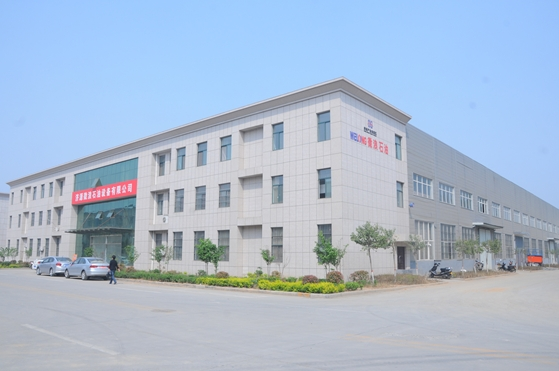The Importance of Casing Integrity in Oil and Gas Wells
Structural Stability and Well Longevity
Casing integrity is paramount in ensuring the structural stability and longevity of oil and gas wells. A well-maintained casing system provides the necessary support to prevent collapse and maintain the wellbore's shape throughout its operational life. This stability is crucial for various well operations, including production, injection, and workover activities. Taper mills contribute to this stability by addressing issues that could compromise the casing's structural integrity, such as scale buildup, debris accumulation, or mechanical damage.
Environmental Protection and Safety
Maintaining casing integrity is essential for protecting the environment and ensuring the safety of well operations. A compromised casing can lead to leaks, contamination of groundwater, and potential surface spills. By using taper mills to restore and maintain casing integrity, operators can significantly reduce the risk of environmental incidents and ensure compliance with regulatory requirements. This proactive approach to well maintenance not only protects the environment but also enhances the overall safety of drilling and production operations.
Operational Efficiency and Cost-Effectiveness
Well-maintained casings contribute to improved operational efficiency and cost-effectiveness in oil and gas production. By ensuring the casing remains in good condition, operators can avoid costly downtime associated with well failures or emergency repairs. The use of taper mills in regular maintenance routines helps prevent issues before they escalate, potentially saving significant resources in the long run. This preventive approach allows for more predictable operations and better resource allocation, ultimately leading to improved profitability for drilling contractors and oil companies.
Taper Mill Design and Functionality
Tapered Cutting Structure
The defining feature of a taper mill is its tapered cutting structure. This design allows for a gradual and controlled removal of material from the casing wall. The tapered shape ensures that the tool can navigate through restrictions or damaged sections of the casing while progressively increasing its cutting diameter. This unique design enables taper mills to effectively address a wide range of casing integrity issues, from minor obstructions to more severe damage, without compromising the overall structure of the wellbore.
Cutting Elements and Materials
Taper mills are equipped with specialized cutting elements designed to efficiently remove various materials encountered in well casings. These cutting elements are typically made from hard, wear-resistant materials such as tungsten carbide or polycrystalline diamond (PCD). The choice of cutting elements depends on the specific application and the type of material to be milled. Some taper mills feature interchangeable or replaceable cutting elements, allowing for customization based on the particular casing integrity challenge at hand.
Fluid Circulation and Debris Removal
Effective debris removal is crucial for maintaining the efficiency of taper milling operations. Taper mills are designed with fluid circulation channels that allow for the continuous flushing of milled material away from the cutting surface. This circulation system helps prevent clogging and ensures that the mill can maintain its cutting effectiveness throughout the operation. The fluid circulation also aids in cooling the cutting elements, further enhancing the tool's performance and longevity during extended milling operations.
Applications of Taper Mills in Casing Integrity Maintenance
Removal of Scale and Deposits
One of the primary applications of taper mills in casing integrity maintenance is the removal of scale and deposits that accumulate over time. These buildups can restrict flow, impede well operations, and potentially lead to more severe casing damage if left unaddressed. Taper mills effectively scrape away these deposits, restoring the casing to its original internal diameter and ensuring optimal flow conditions. This application is particularly valuable in mature wells where scale buildup is a common challenge.
Correction of Mechanical Damage
Taper mills play a crucial role in correcting mechanical damage to well casings. This damage can occur due to various factors, including wear from drilling operations, corrosion, or external forces acting on the wellbore. By carefully milling away deformed or damaged sections of the casing, taper mills can restore the casing's integrity and prevent further deterioration. This application is essential for maintaining the structural stability of the well and avoiding potential failures that could lead to costly production interruptions or environmental incidents.
Preparation for Sidetracking Operations
In scenarios where sidetracking or re-drilling operations are necessary, taper mills are invaluable tools for preparing the casing. They can create a smooth, tapered surface that facilitates the initiation of a new wellbore trajectory. This preparation ensures that subsequent drilling operations can proceed efficiently and with minimal risk of complications. The precise control offered by taper mills in these applications helps maintain the integrity of the existing casing while enabling the successful execution of complex well intervention strategies.
In conclusion, taper mills play a vital role in maintaining casing integrity within oil and gas wells. Their unique design and versatile applications make them indispensable tools for addressing a wide range of casing-related challenges. By effectively removing obstructions, correcting damage, and preparing casings for advanced operations, taper mills contribute significantly to the safety, efficiency, and longevity of well systems. For those seeking high-quality taper mills and expert guidance on their application in casing integrity maintenance, please contact us at oiltools15@welongpost.com. Our team is dedicated to providing innovative solutions that meet the evolving needs of the oil and gas industry.

